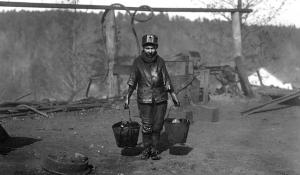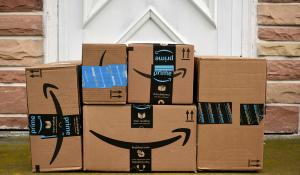
 Cocoa is a $16 billion a year industry, but the average annual revenue the cocoa farmers receives is between $30 and $110 per household. The Fair Trade certification for chocolate has given over 42,000 cocoa farmers in West Africa, the Caribbean, and the Americas a decent price for their crop. Since 90% of the world's cocoa is grown on small family farms of 12 acres or less, Fair Trade cocoa is directly improving the standard of living for cocoa farmers in the poorest regions of the world.
Cocoa is a $16 billion a year industry, but the average annual revenue the cocoa farmers receives is between $30 and $110 per household. The Fair Trade certification for chocolate has given over 42,000 cocoa farmers in West Africa, the Caribbean, and the Americas a decent price for their crop. Since 90% of the world's cocoa is grown on small family farms of 12 acres or less, Fair Trade cocoa is directly improving the standard of living for cocoa farmers in the poorest regions of the world.
Fair Trade Cocoa Cooperative
 Kuapa Kokoo
Kuapa Kokoo
Ghana
Photo and profile provided
by TransFair USA
Kuapa Kokoo is a 35,000-member cocoa producer cooperative founded in Ghana in 1993. It represents a unique empowerment effort that enables small cocoa farmers to have a voice in government and attain more information regarding their dealings with cocoa buyers. Kuapa Kokoo is made up of village societies that elect committees and representatives at a regional level, who in turn elect representatives to the National Union. This Union represents farmers’ interests to government and industry bodies, and shares information that is beneficial to its members.
Kuapa Kokoo owns 33% of the Day Chocolate Company that in turn sells Fair Trade Certified™ Divine and Dubble chocolates in the UK and US. This unique venture allows Kuapa Kokoo’s members to increase their profits from their cocoa and enhance their knowledge of the western chocolate market.
“A bite of Fair Trade chocolate means a lot to peasant farmers in the south. It opens the doors to development and gives children access to healthcare, education, and a decent standard of living.” —Mr. Ohemeng-Tinyase, Managing Director of Kuapa Kokoo
More about chocolate:
- West African countries are dependent on cocoa. The six largest cocoa producing countries are the Ivory Coast, Ghana, Indonesia, Nigeria, Brazil, and Cameroon. In Ghana, cocoa accounts for 40% of total export revenues, and two million farmers are employed in cocoa production. The Ivory Coast supplies 43% of the world's cocoa, according to Global Exchange.
- In many families, the children work on farms with their family members. In the Ivory Coast, 66% of cocoa farmers have never attended school.
- Trafficked child labor and child slave labor are also problematic in this industry. According to a USAID and International Institute of Tropical Agriculture (IITA) study in 2002, "an estimated 284,000 children are working in cocoa farms on hazardous tasks such as using machetes and applying pesticides and insecticides without the necessary protective equipment. Many of these children work on family farms...but about 12,500 children working on cocoa farms had no relatives in the area, a warning sign for trafficking".
- Many Fair Trade producer cooperatives use their Fair Trade premiums to invest in community projects such as construction of schools and health clinics, as well providing organic agriculture training.
- Over 50,000 cocoa growers in eleven countries are members of Fair Trade cooperatives. Fair Trade cocoa is grown in Belize, Bolivia, Cameroon, Costa Rica, Dominican Republic, Ecuador, Ghana, Haiti, Cote D’Ivoire, Nicaragua, and Peru.






